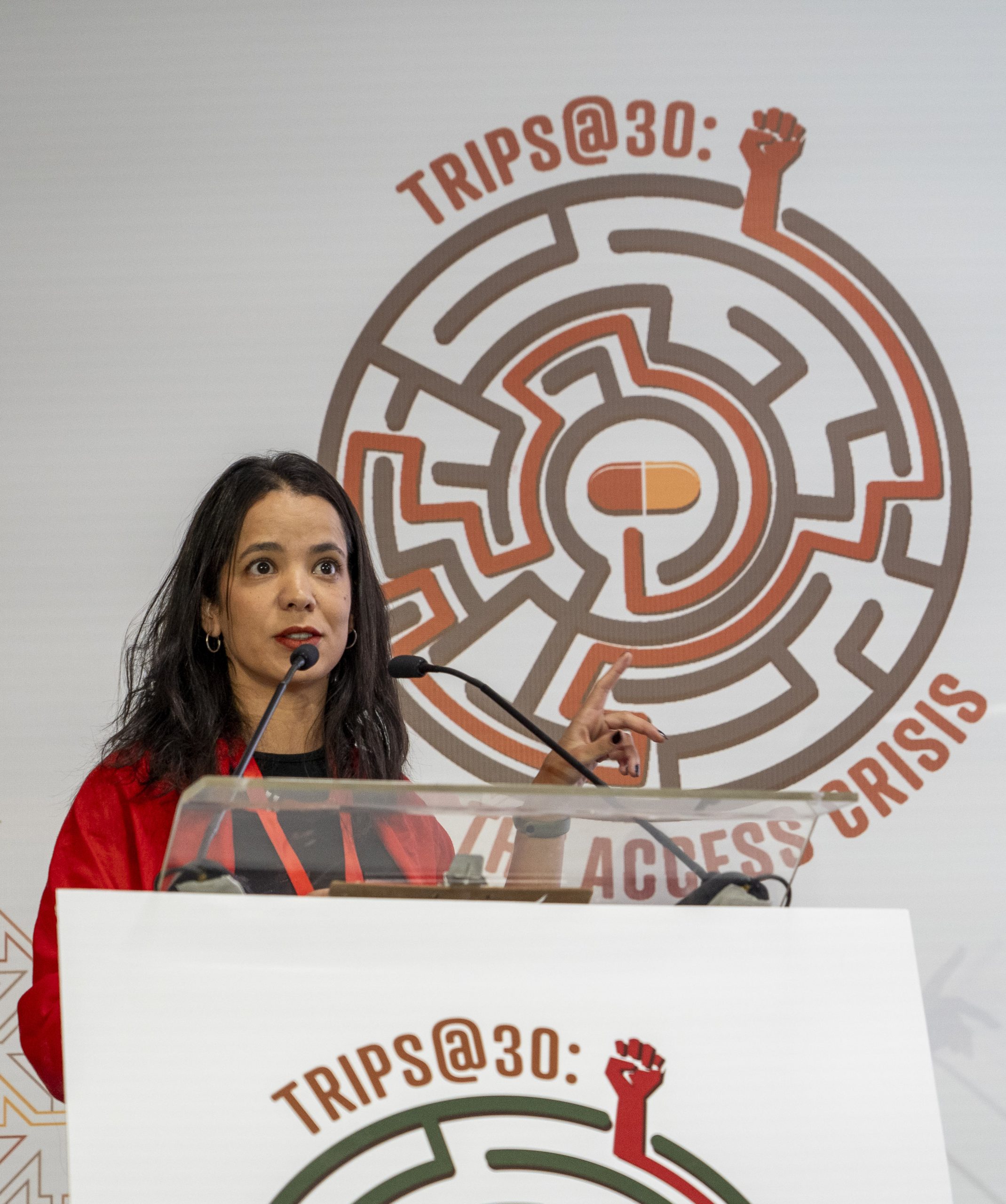Brazil’s leading HIV-advocacy NGO and Make Medicines Affordable campaign member, the Brazilian Interdisciplinary AIDS Association (ABIA), has secured recent victories which could reduce the cost of critical medicines nationwide.
Through its Working Group on Intellectual Property (GTPI), ABIA has filed more than 40 oppositions since 2006 against patents on treatments for HIV, hepatitis C, tuberculosis and COVID-19, which is reshaping Brazil’s pharmaceutical landscape and expanding access to life-saving treatment for patients.
Keep reading to learn about ABIA’s recent patent opposition wins, ongoing patent battles, and what these developments mean for affordability and accessibility for patients in Brazil.
Patent Victories Pave the Way for Affordable Medicine
ABIA filed five oppositions in 2024, two of which have had a favorable decision, resulting in rejected applications by pharmaceutical companies to extend patents on islatravir, an HIV drug being tested in clinical trials, and BPaL, a combination of bedaquiline, pretomanid and linezolid, used in drug resistant-tuberculosis treatment. The remaining three patent oppositions are still under consideration.
In 2023, the National Institute of Intellectual Property (INPI) revoked a granted patent based on ABIA and GTPI’s request for administrative nullity of a patent for pediatric dispersible bedaquiline (BDQ), an essential medication for the treatment of resistant-tuberculosis. Preliminary data from the 2023 Tuberculosis Bulletin identified nearly 3,000 new cases of the disease in Brazil among children under 15 years of age. With this patent rejection, the drug will be able to be produced in its generic version, considerably reducing its prices and thereby increasing its accessibility.
“INPI’s decision is a major victory and paves the way for more access and fair treatment for children fighting tuberculosis. This shows how Brazil is committed to eliminating the number of families affected by tuberculosis by 2030,” Susana van der Ploeg, coordinator of GTPI, stated.
Carolinne Scopel, a pharmacist and pharmaceutical consultant at ABIA, recognized how the efforts of other MMA members created a favourable environment for GTPI’s advocacy. “We believe that multiple coordinated interventions to address the patent barriers create a favorable environment for reducing drug prices. We had a precedent of CSOs filing multiple oppositions to BDQ patent barriers in many MMA countries,” she stated.
Additionally, INPI restricted the scope of protection of a patent for a combination tablet of rilpivirine + tenofovir + emtricitabine (RIL/TDF/FTC) — drugs used in HIV treatment — based on another ABIA and GTPI’s request for administrative nullity, arguing on lack an inventive step, clarity, and precision of the granted patent.
“We want rilpivirine to be accessible to the population. The high prices of medicines, resulting from the patent monopoly, directly influence access to medicines, as they compromise the purchasing power of the patient or the sustainability of acquisition by the SUS [Sistema Único de Saúde, the Unified Health System, which is a publicly funded, universal healthcare system that provides free access to medical care],” van der Ploeg stated.
Patent Cases Still in Progress
Pre-grant oppositions to islatravir and BPaL (bedaquiline, pretomanid, linezolid) both led to applications rejections. GTPI is awaiting the outcome of their pre-grant opposition to DTG/3TC, which refers to the combination of the drugs dolutegravir (DTG) and lamivudine (3TC) in a single tablet. This combination, with the brand name Dovato®, was presented as a “novel treatment” for people living with HIV. However, both drugs have already been used for the treatment of HIV in Brazil since 2016, but in separate tablets, resulting in three tablets daily.
The national patent application regarding DTG dispersible tablet (a tablet which disintegrates in water or other liquid) is also pending. DTG is the most widely used antiretroviral in Brazil, protected by a granted patent until 2026. If this new patent application is granted, there will be an extension of the patent monopoly for this new formulation of DTG used in pediatric patients until 2041. GTPI filed a pre-grant opposition for the patent application based on the lack of novelty and inventive step, which violates the articles 8, 11 and 13 of the Brazilian Industrial Property Law.
The GTPI is also awaiting the analysis of one patent application for the BioNTech/Pfizer vaccine against Covid-19, which is marketed in Brazil as Cominarty®. In 2023, GTPI submitted a pre-grant opposition arguing that the vaccine patent application does not meet the criteria of clarity, precision, descriptive sufficiency, novelty and inventive step, in addition to presenting subject matter not considered an invention, regarding the RNA technology used in the vaccine.
“Vaccines against Covid-19 are extremely important for public health. In addition to patents representing an obstacle to vaccines already available, they can also create barriers to the development of other vaccines that use the same technology,” stated Scopel.
Impact on Accessibility and Affordability
According to Scopel, these successful oppositions will have a long-term impact on the accessibility and affordability of life-saving treatments, as some of these medications are not currently available in Brazil, such as RIL/TDF/FTC and islatravir.
A paper published in the Science & Public Health Journal identified the role of civil society groups such as ABIA in the patent rejections, stating: “It is undeniable that the efforts of the actors involved [such as] civil society organizations, generic companies and public laboratories, played a fundamental role in the results [the rejection of patent applications] observed.”
As of June 2025, ABIA has filed three oppositions: one post-grant opposition on nirmatrelvir/Paxlovid® and two pre-grant opposition on pembrolizumab applications.
“We believe it [opposition] is an important tool to challenge the patent barrier, but we are planning to continue the advocacy for compulsory license on DTG and the fight against DTG high prices. We are also monitoring the patent landscape of lenacapavir, as this drug has already three granted patents and the published prices are inaccessible,” van der Ploeg stated.
She emphasized the importance and relevance of oppositions — particularly pre-grant oppositions, in avoiding consolidation of monopolies, which only further the profits of pharmaceutical companies and decrease accessibility and affordability of life-saving treatments.

